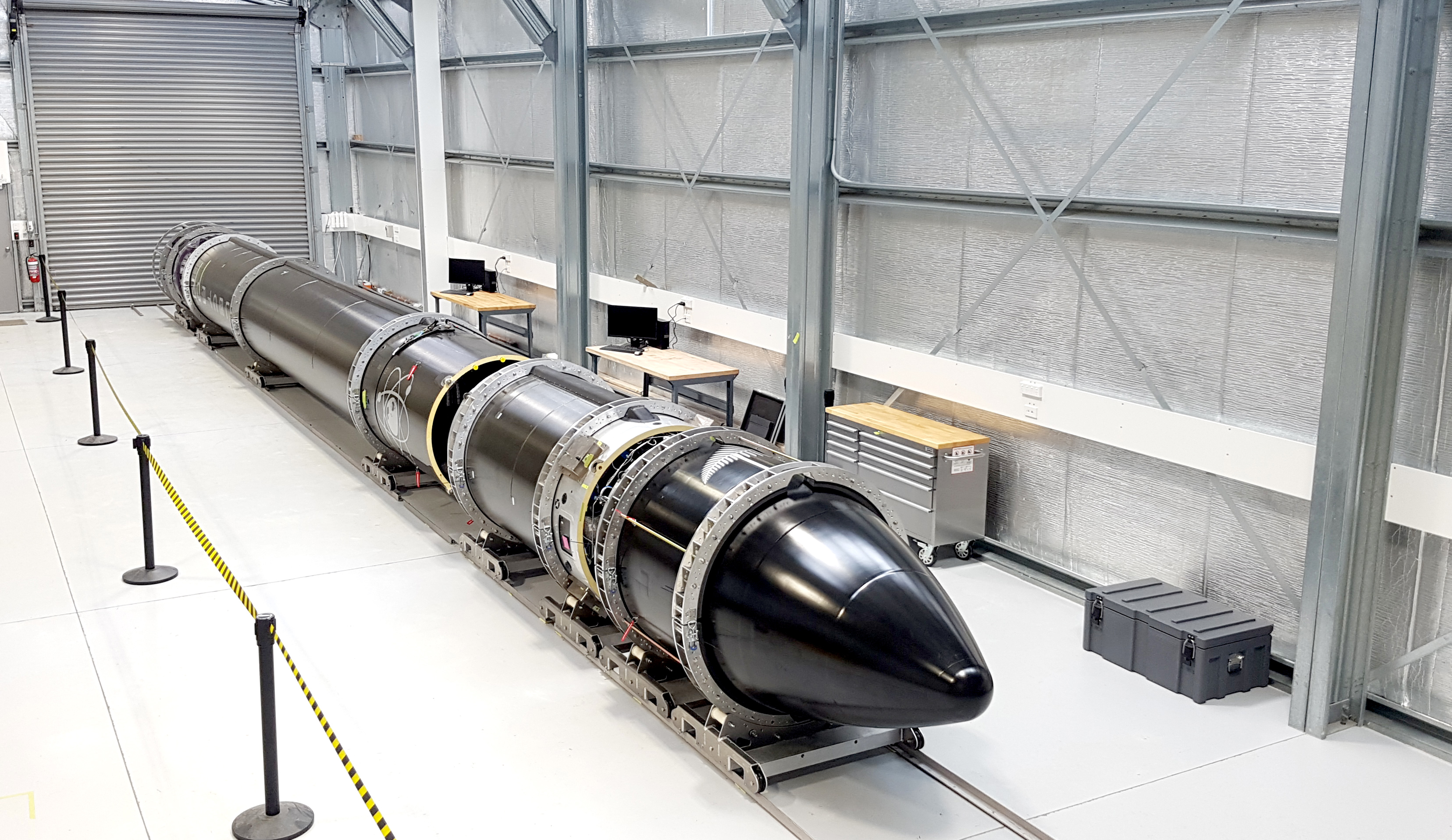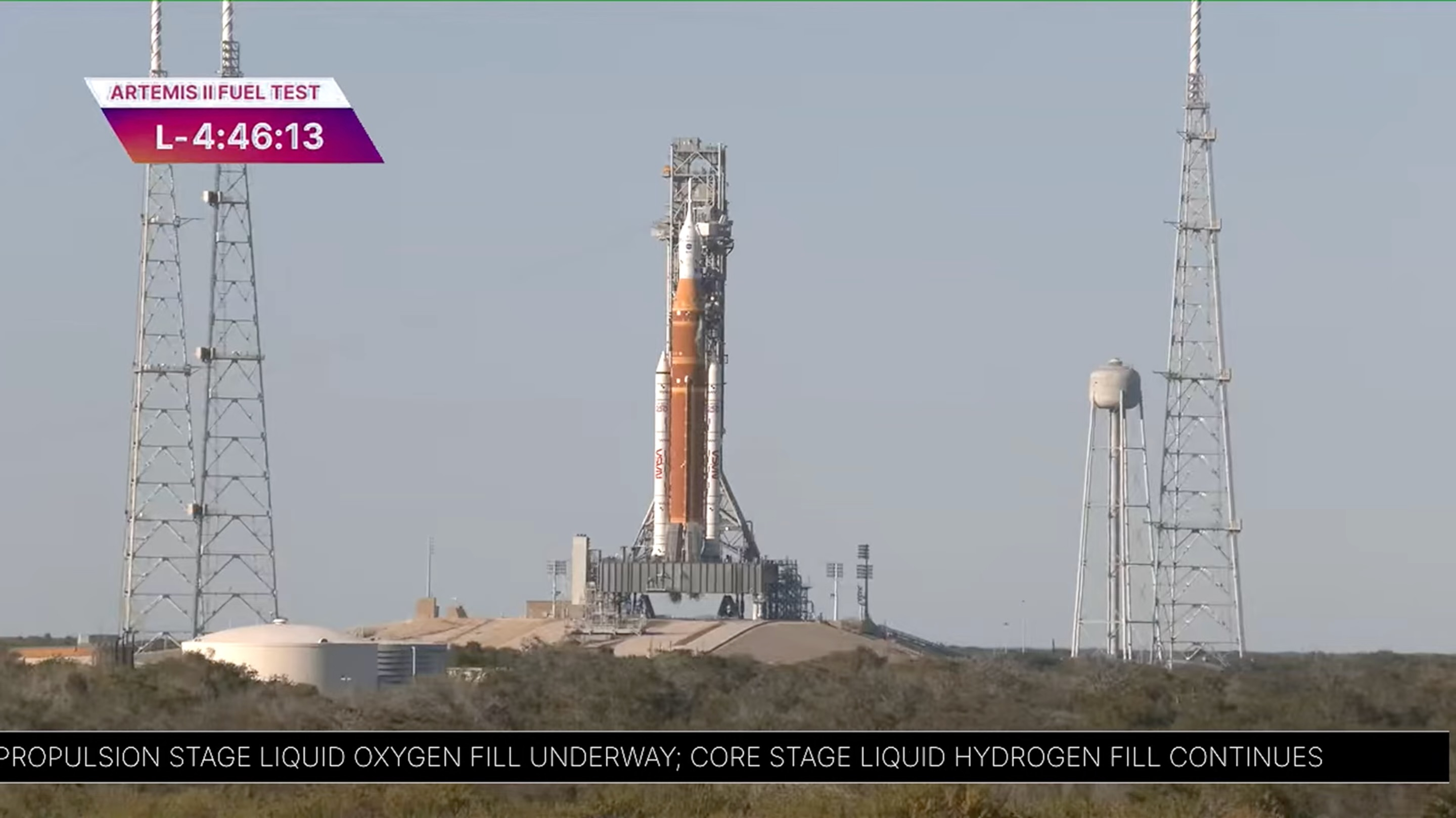Small-Satellite Rocket Nears 1st Test Launch from New Zealand

Rocket Lab, a private company aiming to become a leading launch provider for small satellites, delivered its first test rocket to the company's private launch facility this week.
Rocket Lab expects the Electron rocket, built entirely in-house by the company, to make its first test launch "in the coming months," the company said in a statement. To prepare for that launch date, the first test rocket, named "It's a Test," has arrived at the company's launch facility on the Mahia Peninsula in New Zealand. Over the coming weeks, "a series of tests and checkouts will be conducted at the site before the rocket is signed off to fly," the statement from Rocket Lab said.
"It's an important milestone for our team and for the space industry. In [the] past, it has been countries that go to space, not companies," Peter Beck, Rocket Lab's CEO, said in the statement. [Satellite Quiz: What's Orbiting Earth?]
The small-satellite industry appears to be blossoming worldwide. The increased capability of small electronics means that these "small sats," some no bigger than a lunch box, can be used for applications like Earth imaging, weather tracking and microgravity experiments.
But generally, these tiny fliers can get to space only by piggybacking on larger payloads. The Electron rocket's diminutive size means small satellites take higher priority. So a company looking to put a few small satellites into a particular orbit can buy a trip on Electron instead of waiting around to hitch a ride on a large rocket that's sending a payload into a similar orbit. Because Rocket Lab owns its launch facility, the company also has more control on the time and cadence of launches, Beck told Space.com in 2016. Right now, launches will cost about NZ $7.6 million (about U.S. $5.5 million at current exchange rates), and Beck would like to eventually launch an Electron rocket about once per week, he said.
Beck said that the company is "laser-focused" on the straightforward goal of more affordable and more frequent rocket launches for people who want to get small satellites into orbit. He said the company is on track to make its first customer launches in 2017.
The Electron carries a maximum payload of about 500 lbs. (225 kilograms). There are other companies working to build rockets in this same weight class (with payloads of less than about 1,100 lbs., or 500 kg). NASA has purchased small-satellite launches from three companies, including Rocket Lab, and these missions are expected to launch in 2018.
Breaking space news, the latest updates on rocket launches, skywatching events and more!
Rocket Lab has already secured contracts with private customers, including two launches with the company Moon Express, that will use the Electron to send what could be the first private spacecraft to land on the surface of the moon.
Follow Calla Cofield @callacofield.Follow us @Spacedotcom, Facebook and Google+. Original article on Space.com.

Calla Cofield joined Space.com's crew in October 2014. She enjoys writing about black holes, exploding stars, ripples in space-time, science in comic books, and all the mysteries of the cosmos. Prior to joining Space.com Calla worked as a freelance writer, with her work appearing in APS News, Symmetry magazine, Scientific American, Nature News, Physics World, and others. From 2010 to 2014 she was a producer for The Physics Central Podcast. Previously, Calla worked at the American Museum of Natural History in New York City (hands down the best office building ever) and SLAC National Accelerator Laboratory in California. Calla studied physics at the University of Massachusetts, Amherst and is originally from Sandy, Utah. In 2018, Calla left Space.com to join NASA's Jet Propulsion Laboratory media team where she oversees astronomy, physics, exoplanets and the Cold Atom Lab mission. She has been underground at three of the largest particle accelerators in the world and would really like to know what the heck dark matter is. Contact Calla via: E-Mail – Twitter

